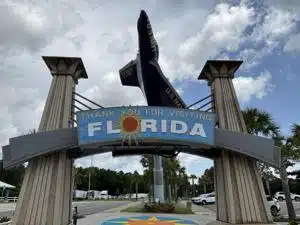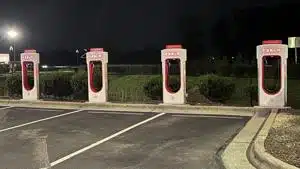(The Center Square) – A Federal Reserve governor accused of mortgage fraud filed a lawsuit Thursday alleging her firing was “unprecedented and illegal.”
Trump fired Federal Reserve Governor Lisa Cook, appointed by President Joe Biden, on Monday after Federal Housing Finance Agency Director William Pulte alleged she committed mortgage fraud.
Pulte said Cook owns properties in Georgia and Michigan but had separately listed both as her “primary residence” on different mortgage agreements. A primary residence can mean lower mortgage rates.
Cook hit back on Thursday with a lawsuit. She said the independence of the central bank was at risk.
“The operational independence of the Federal Reserve is vital to its ability to make sound economic decisions, free from the political pressures of an election cycle,” Cook’s attorney, Abbe David Lowell, wrote in the suit.
He said allegations of wrongdoing don’t meet the requirement for “cause” to terminate.
“This case challenges President Trump’s unprecedented and illegal attempt to remove Governor Cook from her position which, if allowed to occur, would the first of its kind in the Board’s history,” Lowell wrote in the lawsuit. “It would subvert the Federal Reserve Act, which explicitly requires a showing of ’cause’ for a Governor’s removal, which an unsubstantiated allegation about private mortgage applications submitted by Governor Cook prior to her Senate confirmation is not.”
U.S. courts have never weighed in on what constitutes “for cause” when removing a Federal Reserve board of governors member because it hasn’t ever happened.
Cook’s suit names Federal Reserve Chair Jerome Powell and the board of governors as defendants.
The lawsuit comes amid Trump’s high-profile campaign to get the Federal Reserve to lower key interest rates. Trump has said the U.S. should have the lowest rates in the world, but the Federal Open Market Committee has taken a wait-and-see approach on rates over concerns about how Trump’s tariffs would affect the economy.
Trump said he has the authority to fire Cook “for cause” and did so appropriately.
On Monday evening, Trump posted a termination letter to Cook on his Truth Social account.
“The American people must be able to have full confidence in the honesty of the members entrusted with setting policy and overseeing the Federal Reserve,” the president wrote. “In light of your deceitful and potentially criminal conduct in a financial matter, they cannot and I do not have such confidence in your integrity.”
The Federal Reserve said it would abide by a court decision.
Last week, Powell hinted that the Fed may lower interest rates at its next meeting.
Earlier this year, the U.S. Supreme Court indicated it might treat the Federal Reserve differently than other independent agencies.
The nation’s highest court said the president and the Federal Reserve’s relationship differed from other independent agencies.
“The Federal Reserve is a uniquely structured, quasi-private entity that follows in the distinct historical tradition of the First and Second Banks of the United States,” the high court wrote in an emergency ruling in May.
One of Wall Street’s top bankers also warned against a move on the Fed.
“Playing around with the Fed could have adverse consequences, the absolute opposite of what you might be hoping for,” JPMorgan Chase CEO Jamie Dimon said during an earnings call. “It is important that they be independent.”
The article primarily reports on the situation regarding the firing of Federal Reserve Governor Lisa Cook without promoting a particular ideological stance. It provides information on the accusations, Cook’s response through a lawsuit, and the broader context involving President Trump’s approach to the Federal Reserve. The language remains neutral, presenting statements from both sides—Trump’s justification for the firing and Cook’s legal challenge—without emotionally charged or partisan phrasing. It also incorporates perspectives from institutional and financial figures, giving a balanced overview of the issue. Thus, the piece adheres to factual reporting on political actions and ideological positions without contributing its own bias.





















































